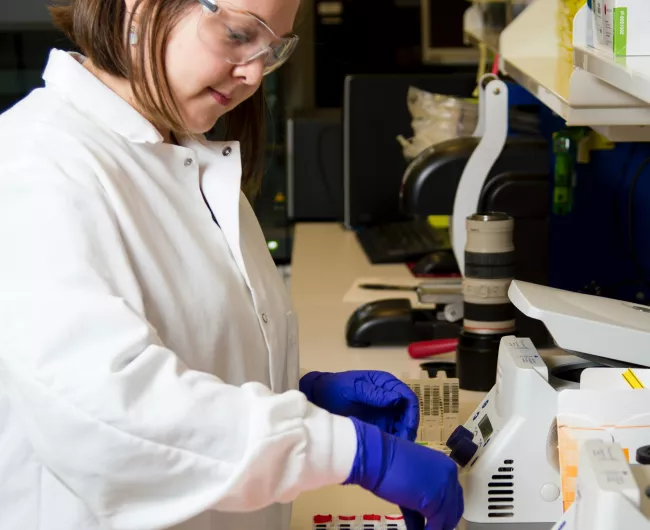
Carcinoembryonic antigen (CEA) biomarker and colorectal cancer


What is the CEA biomarker?
- Carcinoembryonic antigen, also called CEA, is a protein that may be elevated in many colorectal cancer patients and is detected in the blood.
- CEA levels are expected to go down in patients who have had surgery to remove their tumor.
- An elevated CEA may indicate a recurrence of your cancer. CEA is not a biomarker in all colorectal cancer patients.

When and how should I have CEA biomarker testing?
Your doctor will test your blood for CEA levels after you are diagnosed with colorectal cancer, during treatment, and during follow-up visits.
- If you were diagnosed at an early stage and are having surgery, your doctor will test your CEA levels before and after surgery and during your follow-up visits: every 3-6 months during the first 2 years, every 6 months during the following 3 years, and every year afterwards to make sure your cancer is not coming back for a total of 5 years.
- If you were diagnosed with locally advanced cancer and are treated with chemotherapy before or after your surgery, your doctor will test your CEA levels during the course of treatment to make sure the treatment is effective, and killing the cancer cells.
- If you were diagnosed with metastatic disease, your doctor will test your CEA levels during treatment to make sure your treatments are effective at killing the cancer cells.

What do I do with this information?
Knowing the details of tumor biomarkers can help you and your doctor make decisions about personalized treatment with therapies tailored specifically to the characteristics of your tumor.
- If your CEA level does not go down after surgery, it could mean that you may have residual or leftover cancer in your body. It could be metastatic (usually in the liver or in the lungs) or not completely removed after surgery. If this is the case, you will have imaging to determine where the cancer may be and determine next steps with your doctor.
- If your CEA levels went down after surgery but then went up during your follow-up visits, it could mean that your cancer came back. To confirm that cancer returned (recurrence), it is important to repeat the test and also use imaging, such as a chest X-ray, abdominal ultrasound, abdominal, chest and pelvic CT. You may also have a colonoscopy.
- If your CEA levels do not go down during chemotherapy, it could mean that the cancer is not responding to your current treatment. You and your doctor may have to decide on a new course of treatment.

Limitations of CEA testing
While CEA biomarker testing is commonly performed during colorectal cancer diagnosis, treatment, and follow-up care, it has limitations because the test can sometimes result in false positives or negatives.
If a CEA level is low, it does not always mean that the cancer has not come back.
If a CEA level is high, it does not always mean that the cancer has come back. It may take additional testing to confirm the results of your CEA testing.
Other biomarkers
Dihydropyrimidine Dehydrogenase (DPD) BiomarkerTop resources

Christy Williams: Biomarker testing leads to successful treatment
Statistics suggested that Christy’s odds of survival were grim, so she leaned into her faith and kept a positive outlook. She tried to control what she could. And, critically, she received biomarker testing.

EPIC Act to Advance New CRC Therapies Needs Support
The EPIC Act would encourage investment in clinical trials for additional uses of existing drugs.

Colorectal cancer resources for learning and sharing
Whether personally impacted by colorectal cancer (CRC), supporting a loved one, or dedicated to educating and empowering others, these downloadable and printable resources can help.





